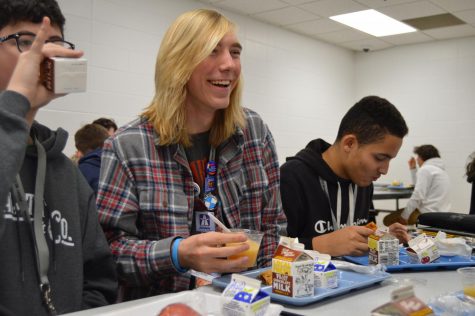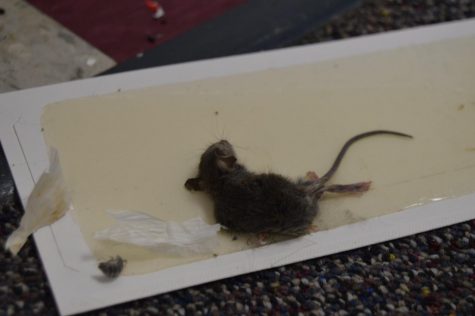Seniors skip PSAT day, miss out on new programs
This year marked the first that seniors were given increased options while the rest of the school takes either the PSAT or ASVAB.
Students could choose three of the ten stations offered, each lasting an hour, except for the final one, which lasted 45 minutes. The rest of the time was spent giving information relating to caps and gowns for graduation.
The stations were mostly centered around career and interest surveys, with others focused on college scholarship and application assistance.
Between joking with a group about someone’s career placement as a septic tank cleaner and listening to students’ favorite superheroes, the social aspect of these events can outlast their original and intended purposes.
Sitting in with counselors and peers in a relaxed environment was entertaining in its own way.
A notable issue is that a large number of seniors are still stuck with the tradition of “scheduling a doctor’s appointment” in order to avoid the marathon of boredom previous generations had become accustomed to.
According to Director of Guidance Brad Miller, of the seniors who did not need to take the ASVAB, and with average daily absences taken into account, approximately 325 seniors should have been attending school on the testing day.
There were over 70 absences from that group alone, leaving around 290 in attendance.
While I’m often one of the first to be critical of our school when criticism is due, this year’s efforts were commendable.
The stations this year were fairly valuable small-group time with counselors.
It’s easy to “go to a doctor’s appointment.” But let’s be honest. What kind of productivity is going to be achieved in those three hours at home? Just putting someone in an environment where they can learn is the first step to teaching anything that’s valuable.
Nobody is completely ready for college. And if they say otherwise, they’re lying.
So what does anybody have to lose by sitting with some counselors and peers and hearing what they have to say about the future? It’s an opportunity to learn and grow in a way that can’t be offered in a classroom.
And even if it’s not beneficial to everybody, it’s a lot better than staying home.



